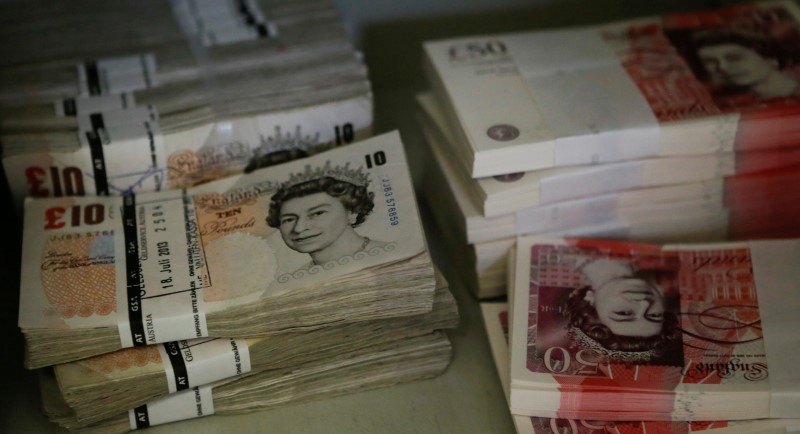Gold prices set for weekly gains on dovish Fed outlook; silver near record high
By Jemima Kelly
LONDON (Reuters) - Sterling sank to an eight-day low and Britain's main share index jumped on Thursday, after the Bank of England surprised markets with a 60 billion pound bond-buying package, and cut interest rates to record lows.
The BoE's interest rate cut, the first since 2009, was widely expected. But economists had been divided on whether the central bank would revive its bond-buying programme, and most of those who had been expecting it had forecast a smaller figure.
British five- and 10-year government bond yields hit record lows of 0.222 percent and 0.675 percent respectively after the policy decision.
The Bank cut its main lending rate to 0.25 percent from 0.5 percent and launched two new schemes, one to buy 10 billion pounds of high-grade corporate bonds and another - potentially worth up to 100 billion pounds - to ensure banks keep lending even after the cut in interest rates.
Having earlier hit a three-week low, the FTSE 100 turned positive, jumping 1.5 percent on the day. The mid-cap FTSE 250 index, dominated by domestically focused companies, extended gains to trade 1.4 percent higher. Lloyds Banking Group (LON:LLOY) and Royal Bank of Scotland (LON:RBS), however, hit day's lows.
Money markets immediately moved to price in the chance of the Bank cutting interest rates further, with five-month overnight interbank offered rates falling 5 basis points to 0.1090 percent
"Today's rate cut...did not come as a surprise to the market," said Anthony Doyle, Investment Director at M&G Retail Fixed Interest. "What came as a surprise was the extent of the stimulus package, which could expand the Bank's balance sheet by 170 billion pounds."
CARNEY "NOT A FAN" OF NEGATIVE INTEREST RATES
Sterling fell by as much as 1.5 percent after the BoE's policy decision, hitting an eight-day low of $1.3112.
But after BoE Governor Mark Carney gave a press conference in which he said he was "not a fan" of negative interest rates, the currency recovered about 0.6 U.S. cents to trade around 1.1. percent down on the day at $1.3173.
"That (Carney's comment on negative rates) helps, given the measures we've seen in the other major economies, like from the ECB and Japan. That did provide a little bit of comfort," said Altana currency fund manager Ian Gunner.
"But the negative for sterling is that he's indicated that rates will be cut again before the end of the year if the forecasts are in line with expectations, so I don't think it's going to run away on the topside."
Against the euro, sterling hit a two-day high of 84.81 pence after the policy announcement.
Policymakers were not completely united on how to respond to the fallout from Brexit. The cut in Bank Rate and the measure intended to ensure banks passed it on to consumers - known as the Term Funding Scheme (TFS) - gained unanimous support.
But three policymakers - Kristin Forbes, Ian McCafferty and Martin Weale - opposed raising the target for quantitative easing government bond purchases to 435 billion pounds from the 375 billion total reached in late 2012.
The BoE also revised up its inflation forecasts sharply due to the big fall in sterling since the financial crisis, predicting it will hit 2.4 percent in 2018 and 2019. The MPC said the costs of trying to bring it back to its 2 percent target in the immediate future would exceed the benefits.
Euro zone bond yields also fell. German 10-year yields, the bloc's benchmark, were down 4 bps at minus 0.14 percent, according to Tradeweb.
